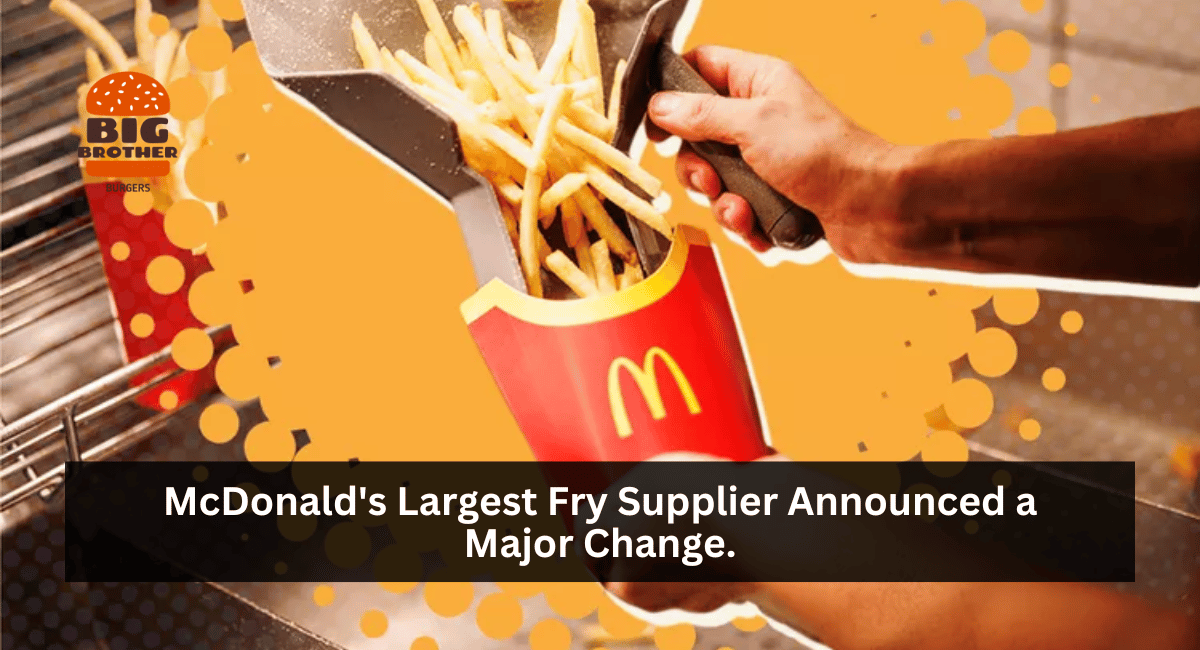If there’s one thing you can only leave the McDonald’s drive-thru with, it’s that iconic red carton filled with golden, crispy fries. McDonald’s fries are famous worldwide, consistently winning top spots in taste tests for their light, crispy texture and delicious flavor. But have you ever wondered where those famous fries come from?
They aren’t made fresh at each location. Instead, McDonald’s relies on contracted suppliers to prepare the potatoes, cut them, partially fry them, and then flash-freeze them. When they reach the restaurant, they’re cooked the rest so they’re hot and fresh every time.
But there’s a significant change on the horizon. One of McDonald’s major suppliers, Lamb Weston, recently announced closing a production plant in Washington state.
This change might raise some concerns for fry lovers everywhere, but let’s break down what’s happening and what it might mean for McDonald’s famous fries.
Central French Fry Supplier Closes Plant
McDonald’s fries aren’t made from scratch on-site. Instead, they come from Lamb Weston, North America’s largest potato processor. Lamb Weston handles the initial steps of cutting, frying, and freezing the fries before shipping them to McDonald’s, helping ensure the fries are always ready for quick and consistent cooking.
Recently, Lamb Weston announced closing its production facility in Connell, Washington, and laying off about 400 employees.
The company also plans to temporarily scale back production lines at other plants. In addition to closing the Connell plant, Lamb Weston announced that it will cut about 4% of its global workforce to respond to declining demand and oversupply issues.
“Restaurant traffic and frozen potato demand, relative to supply, continue to be soft, and we believe it will remain soft through the remainder of fiscal 2025,” said Lamb Weston CEO Tom Werner. This indicates that fewer customers are ordering fries, leading to a surplus of frozen potatoes.
Impact on McDonald’s and Its Famous Fries
What does this mean for McDonald’s, Lamb Weston’s most significant customer? According to CNN, McDonald’s accounts for around 13% of Lamb Weston’s total sales.
While Lamb Weston’s adjustments might seem concerning, there’s no immediate reason to worry about a fry shortage at your local McDonald’s. Closing one production facility only affects about 5% of Lamb Weston’s capacity so that they can keep up with current demand.
Lamb Weston spokesperson Teresa Paulsen reassured consumers, saying, “Lamb Weston is confident in the world’s ongoing love of fries—the closure of one of our older facilities accounts for less than 5% of our production capacity, so this adjustment simply helps address a current supply-and-demand imbalance.”
Why McDonald’s Fries Are Still Here to Stay
Despite the plant closure news, you should expect McDonald’s fries to stay for a while. While Lamb Weston is adjusting, it is still committed to fulfilling contracts with significant customers like McDonald’s.
Additionally, the decision to scale back comes from a temporary drop in demand, which the company expects will balance out in the coming year.
In response to rising food prices, McDonald’s has offered smaller portions, like small orders of fries, to offset costs. This change is part of a broader trend where fast food chains are scaling down portions to keep meals affordable. Even McDonald’s fries, as iconic as they are, aren’t resistant to these adjustments.
The Love for McDonald’s Fries Continues
The popularity of McDonald’s fries is likely to remain strong, even amid changes in the supply chain. As long as customers continue to crave those crispy, golden fries, Lamb Weston and McDonald’s will find a way to keep them coming.
This temporary shift in production likely will only impact the taste and availability of the fries you know and love.
So, the next time you grab a carton of fries from McDonald’s, you can rest assured that they’re still made with the same high-quality potatoes and prepared with the same consistency.
While the supply chain might be adjusting, it appears that, for now, it’s business as usual for the average customer.
READ MORE: Tillamook Brings Back Two Fan-Favorite Ice Cream Flavors

